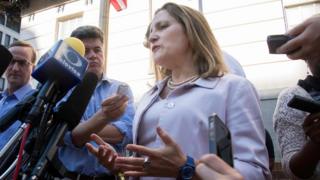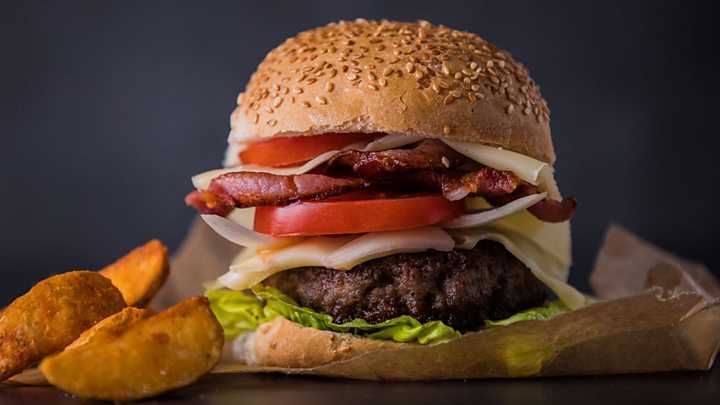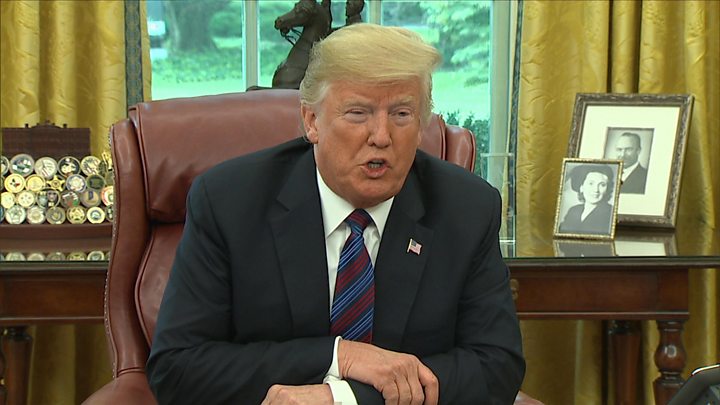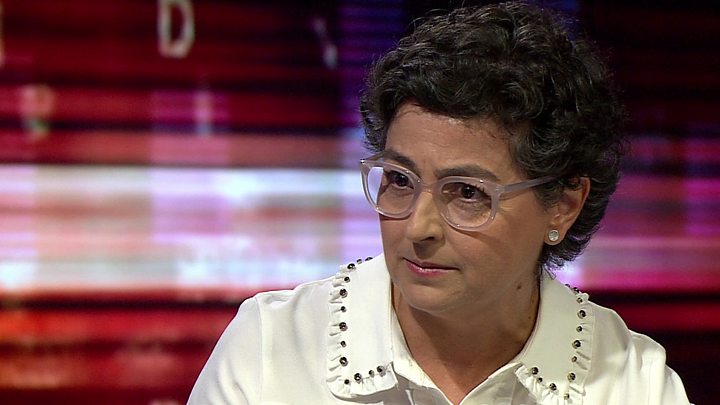Nafta: US-Canada trade talks going down to wire

Image copyright
AFP
Canadian Foreign Minister Chrystia Freeland is in Washington for the talks
Talks between the US and Canada about amending the North American Free Trade Agreement (Nafta) are heading into their final day with no deal in sight.
US President Donald Trump set a Friday deadline for Canada to sign a new agreement with the US and Mexico.
He has threatened to leave Canada on the sidelines since announcing a breakthrough with Mexico on Monday.
However, he and Canadian Prime Minister Justin Trudeau have both said they are hopeful a deal is close.
- Clock is ticking for Canada in US trade negotiations
US Trade Representative Robert Lighthizer is holding talks in Washington with Canadian Foreign Minister Chrystia Freeland aimed at reaching a new deal.
Ms Freeland said on Friday morning that negotiators are “not there yet” on a deal that can be agreed upon by both parties, and that talks would continue later in the day.
“We’re looking for a good deal, not just any deal,” she said. “And we’ll only agree to a deal that is a good deal for Canada.

Media playback is unsupported on your device
Issues that have led to discord between the neighbouring countries include Canada’s dairy trade rules, dispute-handling mechanisms and patent protections for medicines.
Dairy in particular appeared to be a stumbling block in the negotiations on Friday, with US officials saying Canada had made no concessions on agriculture and Canadian Prime Minister Justin Trudeau saying he was standing firm on the issue.
Mr Trump has threatened to levy tariffs on car parts exported from Canada to the US if a deal is not reached.
Why the rush?
The White House wants to notify Congress on Friday that it intends to enter into a new trade agreement, to provide the necessary 90 days’ notice that would allow the new Nafta deal to be signed by 1 December, the day Mexico’s new left-wing president takes office.
“We are replacing Nafta with a beautiful, brand new US-Mexico trade deal,” Mr Trump told supporters in Evansville, Indiana, on Thursday night.
Turning to Canada, he said: “I think it is going to happen and we really have developed a really good relationship. But they have to treat us fairly. They haven’t treated us fairly.”

Media playback is unsupported on your device
Mr Trump has expressed his distaste for multilateral trade agreements on many occasions.
In a 2016 presidential debate with Democratic rival Hillary Clinton, he described Nafta as “the worst trade deal maybe ever signed anywhere” and a “killer” of US jobs.
Once in office he said he wanted to renegotiate – not scrap – the accord, triggering the last year of talks.
What about other trade agreements?
Mr Trump has also threatened to withdraw the US from the World Trade Organization (WTO), saying it treats his country unfairly.
“If they don’t shape up, I would withdraw from the WTO,” Mr Trump said in an interview with Bloomberg News.
The WTO was established to provide rules for global trade and resolve disputes between countries.
Mr Trump says the body too often rules against the US, although he concedes it has won some recent judgments.

Media playback is unsupported on your device
Mr Trump’s warning about a possible US pull-out from the WTO highlights the conflict between his protectionist trade policies and the open trade system that the WTO oversees.
Any other trade issues?
The US has been embroiled in a tit-for-tat trade battle on several fronts in recent months.
The one creating the most interest is with China, as the world’s two largest economies wrangle for global influence. Mr Trump has introduced tariffs on a number of Chinese goods imported into the US.
A third round of tariffs on $200bn (£154bn) of Chinese goods could come as soon as next week, according to a Bloomberg report. Asked to confirm this during the Bloomberg interview, President Trump said that it was “not totally wrong”.
China has responded to US tariffs by imposing retaliatory taxes on the same value of US products and has filed complaints against the tariffs at the WTO.
Mr Trump has also turned up the heat on the European Union, rejecting its offer to eliminate car tariffs if the United States does the same.
The proposal was “not good enough”, he told Bloomberg. “Their consumer habits are to buy their cars, not to buy our cars.”
European Commission chief Jean-Claude Juncker warned on Friday that the EU would respond with tariffs of its own if Mr Trump imposed duties on foreign cars.
Also during his election campaign, Mr Trump railed against the Trans-Pacific Partnership (TPP), a 12-nation trade deal that was a linchpin of President Barack Obama’s Asia policy.
Mr Trump said the deal was a “potential disaster for our country”.
One of his first acts as president was to withdraw the US from the TTP, although he has since said he might consider rejoining if the terms are “substantially better”.

